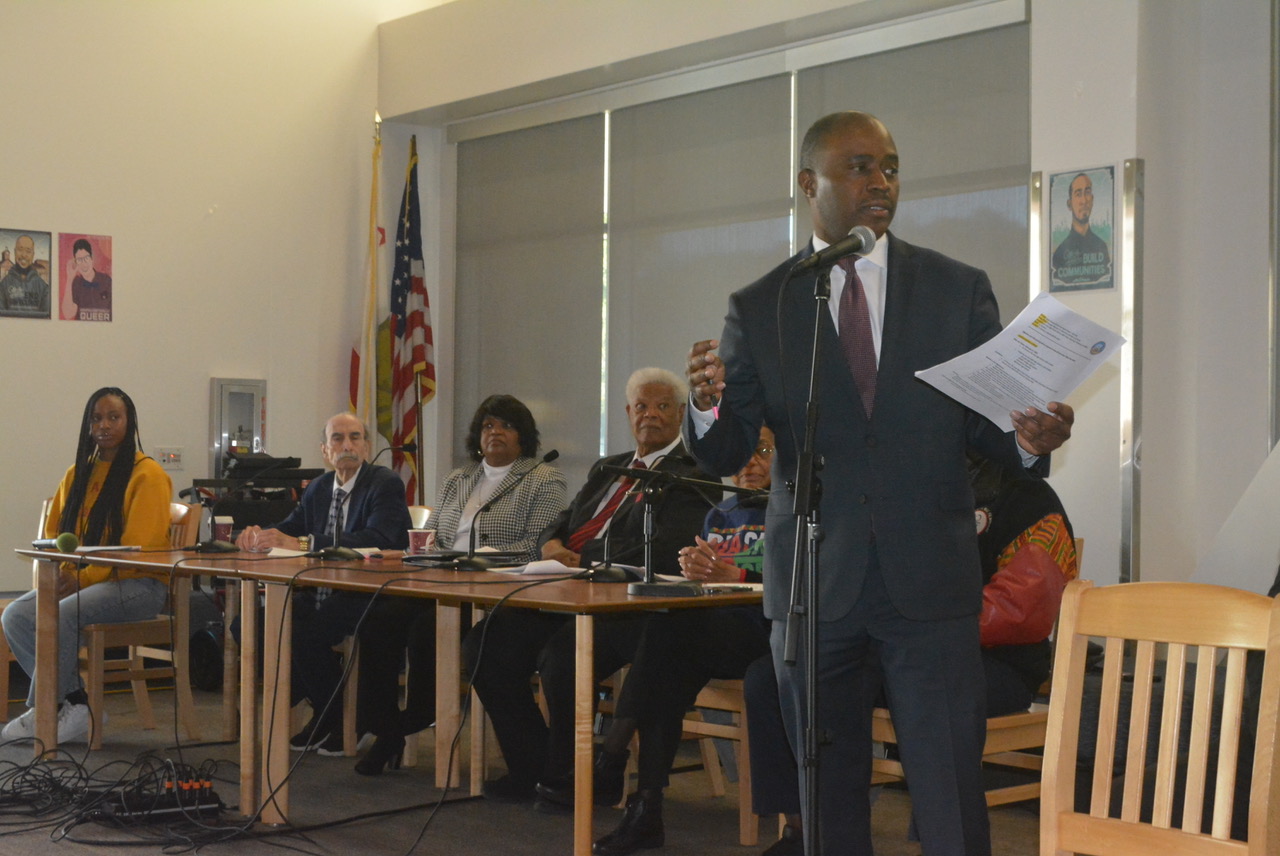By McKenzie Jackson/California Black Media
Gov. Jerry Brown’s proposed budget features a flow of billions of dollars to the state’s disadvantaged, poor and homeless.
Funds for specific programs geared toward helping Californians in need and a two-dollar hike in the Golden State’s minimum wage are just two of the ways Brown’s $122.6 billion plan for the next fiscal year intends to achieve that.
However, California Legislative Black Caucus member Sen. Holly Mitchell believes a bit more can be done to impact the lives of the state’s downtrodden.
In a statement released after Brown unveiled his general fund budget plan on Jan. 7, Mitchell said more monies need to go to grants for CalWORKS, a program that provides temporary cash assistance to low‑income families with children to meet basic needs.
“The grant does not pay for a family’s basic needs, and so the family may go without housing, without paying utility bills, and without transportation to the doctor. On top of that, we continue to deny aid to children simply because they are born into welfare; the poorest children, the children that need the most financial help,” she said. “Common sense, scientific data, and the economics of poverty tell us we should help these kids. Yet we deny them the assistance that would allow their parents to support them. Then, we expect children raised in these circumstances to never turn to welfare, do just fine in school, somehow get through college and end up paying income taxes while we’re retired. It offends me that our government does this to our children.”
The governor’s budget designatesa five percent increase in funds to CalWORKS, a social services program, estimated to cost $326 million in 2015-16 and $319.8 million in 2016-17.
However, Mitchell, who represents several Los Angeles-area cities, said she is glad Brown’s proposal sends $2.9 billon to the Supplemental Security Income/State Supplemental Payment program. The initiative provides cost-of-living funds to aged, blind and disabled Californians.
“I appreciate the Governor’s recognition of the importance of this,” she said.
The proposed budget features $400 million allotted for Affordable Housing and Sustainable Communities programs. Many of them seek to reduce greenhouse gas emissions by supporting more compact and infill development patterns which the government hopes would encourage walking, biking and active public transportation usage instead of driving in some disadvantaged communities.
The 265-page plan also includes an increase in California’s minimum wage to $10 which raises the income of an estimated 2.2 million workers. It also gives $380 million in funding to the two-year-old Earned Income Tax Credit to help the state’s poorest working families.
Other highlights of the budget include increases in funding for education, health care and state infrastructure, bolstering the California’s Rainy Day Fund and paying down state debts and liabilities.
There is a $1.1 billion compromise on a new tax on health insurers to replace one that will expire in June.
Lawmakers will debate Brown’s proposed budget in the coming months before the 2016-2017 fiscal year begins in July.
Like Mitchell, other politicians gave their opinions on issues the budget tackled.
Assembly Budget Chair Shirley N. Weber also said Brown’s plan needs to address the counterproductive restrictions in CalWORKS and how to compensate care providers for developmentally disabled individuals.
“I believe we can be optimistic about seeing some progress on these issues this year,” she said.
Weber, a Democrat from the San Diego area, added that she is happy to see continued improvement in the state’s fiscal health.
“That’s a testament to the collaborative efforts of Democrats in both houses of the Legislature, the public and the Governor,” said the Legislative Black Caucus member. “I agree overall with the Governor’s vision of ensuring the state’s continued fiscal stability through changes in the business cycle. I am also heartened in the proposed investment in K-12, higher education and funding for the courts.”
Board of Equalization Chairman and Franchise Tax Board member Jerome Horton said Brown’s proposed budget demonstrates wisdom in preparing for the future with the rainy-day reserve, strengthening infrastructure, bolstering education, protecting seniors, supporting in-home care workers and creating a safety net for the poor.
“To remain vigilant in collecting the projected taxes, the additional funding in the budget allows for a possible increase in compensation for state employees which will assist us in recruiting and retaining employees who are crucial to this effort,” Horton said.
Sen. Jean Fuller of Bakersfield said Brown’s budget proposal proves California doesn’t have a revenue problem, and the state’s priorities can be funded without extending or raising taxes.
“Budgets are about priorities and we can’t go on a spending spree,” the Republican continued, “We are committed to caring for California’s most vulnerable people, and keeping our communities safe.
Senator Bob Huff of San Dimas also liked adding more funds to the Rainy Day Fund.
“I’m also pleased the governor has largely resisted the urge to increase spending on many social programs or create new programs that demand ongoing funding.





